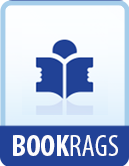The mother can clothe him in Jaeger wool from head to foot, or keep him in low neck, short sleeves and low stockings, because she thinks it pretty; she can feed him exclusively on raw beef, or on vegetables, or on cereals; she can give him milk to drink, or let him sip his father’s beer and wine; put him to bed at sundown, or keep him up till midnight; teach him the catechism and the thirty-nine articles, or tell him there is no God; she can cram him with facts before he has any appetite or power of assimilation, or she can make a fool of him. She can dose him with old-school remedies, with new-school remedies, or she can let him die without remedies because she doesn’t believe in the reality of disease. She is quite willing to legislate for his stomach, his mind, his soul, her teachableness, it goes without saying, being generally in inverse proportion to her knowledge; for the arrogance of science is humility compared with the pride of ignorance.
In these matters the child has no rights. The only safeguard is the fact that if parents are absolutely brutal, society steps in, removes the untrustworthy guardian, and appoints another. But society does nothing, can do nothing, with the parent who injures the child’s soul, breaks his will, makes him grow up a liar or a coward, or murders his faith. It is not very long since we decided that when a parent brutally abused his child, it could be taken from him and made the ward of the state; the Society for the Prevention of Cruelty to Children is of later date than the Society for the Prevention of Cruelty to Animals. At a distance of a century and a half we can hardly estimate how powerful a blow Rousseau struck for the rights of the child in his educational romance, “Emile.” It was a sort of gospel in its day. Rousseau once arrested and exiled, his book burned by the executioner (a few years before he would have been burned with it), his ideas naturally became a craze. Many of the reforms for which he passionately pleaded are so much a part of our modern thought that we do not realize the fact that in those days of routine, pedantry and slavish worship of authority, they were the daring dreams of an enthusiast, the seeming impossible prophecy of a new era. Aristocratic mothers were converts to his theories, and began nursing their children as he commanded them. Great lords began to learn handicrafts; physical exercise came into vogue; everything that Emile did, other people wanted to do.
With all Rousseau’s vagaries, oddities, misconceptions, posings, he rescued the individuality of the child and made a tremendous plea for a more natural, a more human education. He succeeded in making people listen where Rabelais and Montaigne had failed; and he inspired other teachers, notably Pestalozzi and Froebel, who knit up his ragged seams of theory, and translated his dreams into possibilities.
Rousseau vindicated to man the right of “Being.” Pestalozzi said “Grow!” Froebel, the greatest of the three, cried “Live! you give bread to men, but I give men to themselves!”




